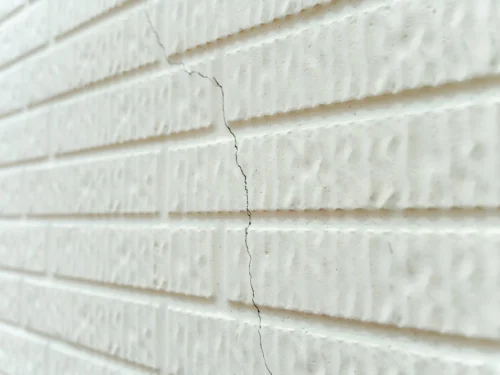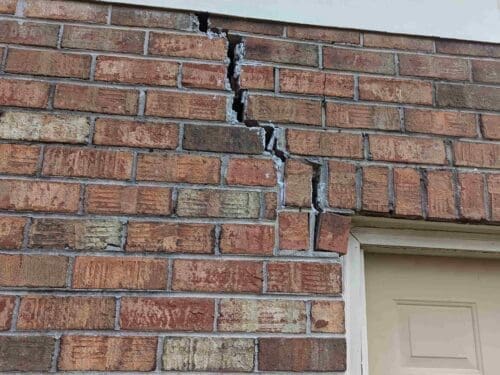If you’re planning to sell your home, you’ve probably asked yourself: does foundation repair affect home value?
It’s a big question and the answer can decide how much money you walk away with at closing. Many homeowners worry that repairs might scare off buyers, while others wonder if fixing the issue could actually raise their home’s value. The truth lies somewhere in between, and it depends on how you handle it.
Let’s walk through what you need to know, step by step.
Why the Foundation Matters More Than You Think
Every buyer wants a home that feels safe and stable. Even if your kitchen is remodeled or the floors are new, cracks in the foundation or sloping floors will raise concerns.
That’s why selling a house with foundation problems is such a challenge. Buyers don’t just see cracks in the walls, they see risk. Risk of bigger problems later, risk of high repair costs, and risk that the home might not be a good investment.
Appraisers also factor foundation issues into their calculations. On average, a home with foundation problems can lose 10–15% of its market value. For a $300,000 property, that’s $30,000–$45,000 gone instantly.
So yes, the foundation has a direct impact on what your home is worth.
Does Foundation Repair Increase Home Value?
Here’s where things get interesting. Many sellers assume repairs will hurt their chances — but in reality, foundation repair can increase home value.
When you repair, you:
- Remove the biggest red flag buyers fear.
- Show that you’ve taken care of the property.
- Offer peace of mind with warranties that often transfer to the new owner.
In fact, some modern repair techniques like steel piers, helical piers, or wall anchors, can leave the foundation stronger than it was when originally built. Buyers see this as a positive. It tells them they’re buying a home with fewer long-term risks.
So does foundation repair affect home value? The answer is almost always yes, and the effects are extremely positive when the work is done properly.
Can You Sell a House with a Cracked Foundation?
Technically, yes. You can sell a house with a cracked foundation. But here’s what most homeowners don’t realize: it usually means accepting a much lower offer.
Why? Two main reasons:
- Disclosure laws: In most states, you’re legally required to tell buyers about known foundation problems. If you don’t, you risk lawsuits later.
- Buyer hesitation: Even a small crack makes buyers wonder what else might be wrong. Many walk away, and the ones who stay will expect a steep discount.
This is why many sellers choose to fix the issue before listing. A repaired foundation, backed by documentation and warranties, looks far better than a “problem waiting to happen.”
Cosmetic vs. Structural Cracks: What Buyers Notice
Not every crack is a deal breaker. Buyers and inspectors look at two main types:
- Cosmetic cracks: Small, thin surface cracks often caused by natural settling. These are usually harmless and easy to fix with patching.
- Structural cracks: Wider cracks, especially those that run diagonally or cause uneven floors and sticking doors. These signal movement in the foundation and raise serious red flags.
Understanding this difference matters when marketing your home. Cosmetic cracks are minor repairs. Structural cracks almost always need professional attention before you sell.
The Buyer’s Perspective: Why Foundation Problems Scare People
Imagine walking into a house and noticing that the floors slope or the basement wall bows inward. Even if the living room looks perfect, you’d probably hesitate.
That’s exactly how buyers feel. They worry about:
- Repair costs: Is this a $5,000 fix or a $50,000 fix?
- Hidden issues: If the foundation has problems, what about plumbing, roofing, or framing?
- Financing: Some lenders hesitate to approve mortgages for homes with visible structural damage.
This is why selling a house with foundation problems often leads to fewer offers, lower prices, and longer time on the market.
What Foundation Repair Actually Involves
For many homeowners, foundation repair sounds scary. But the reality is that modern techniques are straightforward and designed to last. Here are a few of the most common methods:
- Steel piers or helical piers: Long, engineered supports driven deep into stable soil to lift and stabilize the foundation.
- Wall anchors or braces: Used to stop bowing basement walls from moving further.
These solutions aren’t “band-aids.” They’re permanent, engineered fixes often backed by transferable warranties. When you can show buyers the paperwork, the before-and-after photos, and the warranty, the repair becomes a selling point instead of a liability.
Repairing First vs. Selling As-Is
Let’s compare both paths:
If you sell as-is with foundation problems:
- Expect lower offers.
- Attract mostly investors or flippers.
- Risk extended time on the market.
- Face heavy buyer negotiations.
If you repair before listing:
- Protect your home’s full market value.
- Attract regular buyers looking for stability.
- Speed up the sales process.
- Show proof of long-term safety.
When you do the math, the second option usually wins. Even if you spend $10,000 on repairs, you might preserve $30,000–$40,000 in value.
Regional Factors You Should Know
Foundation problems don’t look the same everywhere in the U.S. Soil and climate play a big role:
- Texas and Oklahoma: Expansive clay soils expand when wet and shrink in drought, creating cracks and shifts.
- Midwest: Freeze-thaw cycles put pressure on basement walls.
- Coastal areas: High water tables and flooding can erode foundations.
Buyers in these regions are especially alert to signs of damage. That makes professional repair, backed by local expertise, even more important.
How to Position Repairs When Selling
Repairs don’t have to be a negative. Done right, they can be a selling advantage. Here’s how:
- Document everything: Keep invoices, inspection reports, and warranty certificates.
- Be upfront in your listing: Buyers appreciate honesty and transparency.
- Highlight warranties: Transferable coverage gives buyers long-term confidence.
- Educate buyers: Many don’t realize repaired foundations can actually be stronger.
Handled this way, the repair adds credibility instead of raising questions.
When’s the Best Time to Repair?
The earlier, the better. Catching foundation issues quickly means:
- Lower repair costs.
- Less stress when you decide to sell.
- No last-minute deal breakers during inspection.
Waiting usually leads to bigger damage, higher costs, and less negotiating power when it matters most.
Final Answer: Does Foundation Repair Affect Home Value?
Yes, and often more than homeowners realize.
- Unrepaired issues can slash 10–15% off your home’s value.
- Professional repairs restore confidence, protect your asking price, and can even increase value.
- Buyers respond positively when they see clear proof that the home is stable and safe.
So instead of asking “does foundation repair affect home value”, the real question is: are you willing to risk losing thousands by avoiding it?
If you’re worried about selling a house with foundation problems, or wondering if foundation repairs increase home value in your specific case, the best next step is simple: talk to a professional.
Contact us today for a free inspection. We’ll help you understand your options and show you how foundation repair can protect your home’s value before you sell.
Frequently Asked Questions
1. Does foundation repair increase or only restore home value?
Foundation repair can both restore and increase home value. Fixing the problem removes a major concern that lowers property worth, but it can also make the home more attractive to buyers. A professionally repaired foundation, especially with a transferable warranty, often gives buyers confidence and can boost resale value.
2. Will buyers be wary of a house that’s had foundation repairs?
Some buyers may hesitate at first, but most will feel reassured if the repairs were done by a reputable company and backed by a transferable warranty. In fact, a documented repair can show that the issue was handled correctly and may make the home more appealing compared to one with unresolved foundation problems.
3. How much does foundation repair typically cost, and is it worth it?
The cost of foundation repair varies depending on the home and the issue. Every situation is unique, which is why we offer free inspections and estimates. Investing in foundation repair is worth it because it protects your home’s structural integrity, maintains or increases property value, and makes the home easier to sell.
4. Do I have to disclose past foundation repairs when selling my home?
Yes. Most states require homeowners to disclose any past foundation repairs. Being upfront helps avoid legal issues and builds trust with buyers. Proper documentation, including repair invoices or warranties, can reassure buyers that the work was done correctly.
5. Can I sell my house as-is if it has foundation issues?
Yes, you can sell a house as-is even with foundation issues, but it may limit your buyer pool and lower the sale price. Many buyers are hesitant to purchase a home with unresolved structural problems, so repairing the foundation first can make your home more attractive and easier to sell.
6. What kind of warranty should I look for after foundation repair?
Look for a transferable, written warranty. A strong warranty ensures the repair is backed long-term and can reassure future buyers, increasing your home’s resale value.
7. Will foundation repairs affect my home appraisal?
Yes. Properly completed foundation repairs can positively impact a home appraisal by addressing structural issues that would otherwise lower the value. Providing documentation of the repairs and any warranties helps appraisers see that the home is structurally sound
8. What are the signs I need foundation repair before selling?
Common signs include cracks in walls, uneven floors, doors or windows that stick, gaps around window frames, and water intrusion in the basement or crawlspace. Noticing any of these issues early allows you to address them before selling, protecting your home’s value and making it more appealing to buyers.
9. How long does foundation repair take?
The timeline for foundation repair depends on the size of the home and the severity of the issue. Most repairs can be completed in a few days to a couple of weeks. A professional inspection will give a more accurate estimate for your specific situation.
10. Are there financing options for foundation repair?
Yes. We offer financing and payment plans to help make foundation repairs more manageable. During your free inspection and estimate, we can discuss the options that work best for your situation.









